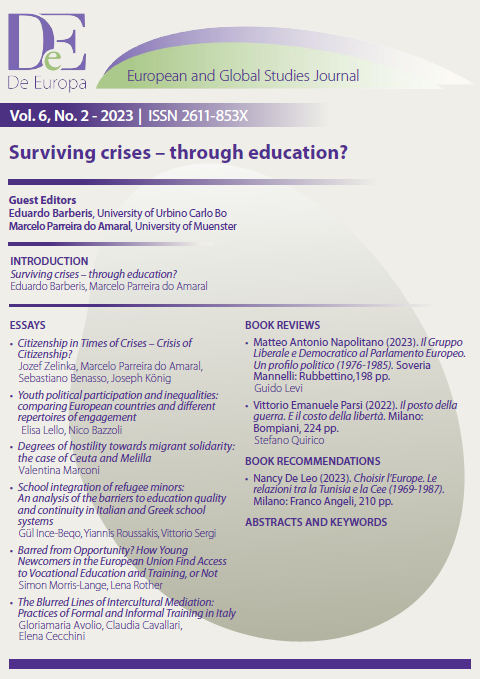Barred from Opportunity? How Newly-Migrated Youth in the European Union Find Access to Vocational Education and Training, or Not
DOI:
https://doi.org/10.13135/2611-853X/7133Abstract
Young refugees and other 16-to-25-years-old newcomers represent more than a quarter of total EU migration. Most of them would like to work and earn money as soon as possible and for many, technical and vocational education and training (TVET) could be gateway to skilled and secure employment. However, little is known about their experiences in accessing TVET across Europe. To help expand our empirical understanding of salient barriers and access dynamics, we compared national and sub-national policies, followed by semi-structured
interviews with 40 newcomers and 82 teachers, employers, bureaucrats and other TVET professionals in four countries: Austria, Germany, Slovenia, and Spain. Our findings show that young newcomers face a plethora of regulatory and non-regulatory barriers to education. Unlike their non-migrant peers, newcomers have to navigate not only an education system which they do not yet know, but also an increasingly complex migration system, whose rules and regulations interfere with their individual ability to access TVET. Hence, most new-comers require extensive professional counseling and support en route to their desired TVET program. The teachers, employers, bureaucrats and other TVET professionals they encounter were found to play a pivotal role in migrants’ educational biographies as their (in)actions and discretionary decisions were found to effectively (re)shape education access policies on the ground.
Keywords: refugees, eu, migration, TVET, education, regulation




 The journal has been approved for inclusion in DOAJ. The DOAJ listing of the journal is available at
The journal has been approved for inclusion in DOAJ. The DOAJ listing of the journal is available at 

